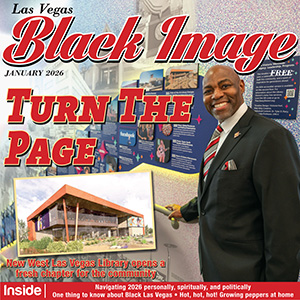YOU! HAVE THE POWER | DEI, ‘Woke’: What do they really mean?
October 16, 2025 by agutting@reviewjournal.com
Filed under Conversation
BY DR. ELLEN W. BROWN
What is DEI?
It stands for Diversity, Equity, and Inclusion — but what difference does that make in your life?
Is DEI about specific groups being welcomed — or left out entirely? The short answer: all of the above … and more.
We’re in a defining moment for DEI. The platform is evolving — but the direction it’s headed depends on who you are and where you stand.
Some people see DEI as a form of progress. Others see it as a threat. Much of the backlash today comes from the belief that DEI initiatives discriminate against white individuals — often called “reverse discrimination.” Outside of legal definitions, discrimination is often in the eye of the beholder. And yes, the internet is overflowing with commentary on both sides of this debate.
But there’s another layer to this: the rise of so-called “woke politics.”
Let’s talk about that word — woke.
When did it become something negative? When did being “woke” — once a term that meant being informed, aware, and socially conscious — turn into an insult?
In my world, being “woke” was a compliment. It meant someone was aware, knowledgeable, and paying attention to what matters. Can I get a “Whoop- Whoop”?
Now, it’s often used to shame or mock people for holding beliefs that challenge the status quo. Two completely opposite meanings — one rooted in justice, the other in ridicule.
In fact, the term “woke” originally emerged from Black American communities as a call to be alert to racial and social injustice. That meaning has been twisted, politicized, and weaponized in today’s discourse.
There’s a local angle, too. A nonprofit news outlet recently launched in Nevada called Nevada Current. They’ve published commentaries on DEI — expanding it even further to Diversity, Equity, Inclusion, and Justice (DEIJ). According to their mission, they support DEI as it was originally intended: a framework for fairness, opportunity, and representation. Personally, I plan to follow them — their approach aligns with how I understand DEI.
So here’s my takeaway: If you consider yourself “woke” — in the original sense of the word — stay alert. Not just to injustice, but to how language is being co-opted and distorted. Don’t let others define your values for you.
I encourage you to educate yourself. One great place to start is YouTube — search for a video titled “The Origin of the Term ‘Woke.’” It’s eye-opening, to say the least.
In the end, YOU have the power — to know, to speak, to act.
And that’s what being truly “woke” is all about.
This article aims to raise awareness of this initiative. Please share it with your friends, family, business contacts, congregations, and community members. Together, we can make a difference. I welcome your input, questions, and ideas for topics; feel free to send them to ebrown.nci@ gmail.com






